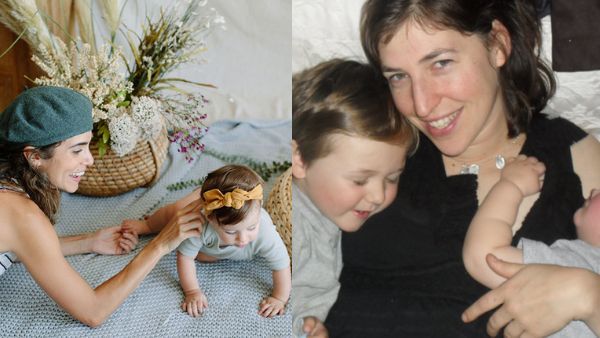Just In
- 2 hrs ago

- 4 hrs ago

- 7 hrs ago

- 11 hrs ago

Don't Miss
- Movies
 Salman Khan Case: Actor Arrives In 'X' Cr Car At Airport With Tight Security Days After House Firing Incident
Salman Khan Case: Actor Arrives In 'X' Cr Car At Airport With Tight Security Days After House Firing Incident - Finance
 Closing Bell: Market Stages Smart Recovery, Sensex & Nifty Snap 4-Day Losing Streak Led By HDFC Bank
Closing Bell: Market Stages Smart Recovery, Sensex & Nifty Snap 4-Day Losing Streak Led By HDFC Bank - News
 Who Is Isha Arora? The Viral UP Poll Officer Taking Social Media By Storm
Who Is Isha Arora? The Viral UP Poll Officer Taking Social Media By Storm - Sports
 DC vs SRH, IPL 2024: Will David Warner play against Sunrisers Hyderabad?
DC vs SRH, IPL 2024: Will David Warner play against Sunrisers Hyderabad? - Automobiles
 Ford Territory SUV Name Trademarked – Likely To Be Positioned Below The Everest SUV
Ford Territory SUV Name Trademarked – Likely To Be Positioned Below The Everest SUV - Technology
 OnePlus Ace 3 Pro Leak Hints at New Design; Expected Launch, Specifications We Know So Far
OnePlus Ace 3 Pro Leak Hints at New Design; Expected Launch, Specifications We Know So Far - Travel
 Journey From Delhi To Ooty: Top Transport Options And Attractions
Journey From Delhi To Ooty: Top Transport Options And Attractions - Education
 IIIT-Bangalore Introduces PG Diploma In Digital Product Design And Management
IIIT-Bangalore Introduces PG Diploma In Digital Product Design And Management
World Breastfeeding Week 2022: Celeb Moms Who Are Normalising Extended Breastfeeding; Know The Benefits
The World Breastfeeding Week (WBW) is an annual global campaign promoting breastfeeding awareness. In honour of the Innocenti Declaration of 1990, WBW is celebrated every year from 1-7 August.
In 1992, World Breastfeeding Week was established with themes including healthcare systems, women and work, breastfeeding substitutions, community support, ecology, economy, science, education, and human rights. WBW has been aligned with the Sustainable Development Goals (SDGs) since 2016. In addition, the World Health Assembly endorsed WBW as an important strategy for promoting breastfeeding in 2018.
World Breastfeeding Week 2022 theme is "Step Up For Breastfeeding: Educate and Support" to raise public awareness of the importance of breastfeeding and elevate it to a public health obligation by encouraging organisations and countries to implement measures to preserve breastfeeding [1].
Breastfeeding, despite being a completely natural bodily function, is often stigmatised. We hear many stories of breastfeeding mothers who've been abused or side-lined for daring to do it outside the 'privacy' of the four walls.
The fact that celebrities are proudly normalising breastfeeding by posting beautiful pictures is refreshing. Here are just a few empowering famous faces who are helping remove breastfeeding's stigma - and at the same time, highlight the importance of extended breastfeeding.
[image courtesy: Instagram]

Celeb Moms Who Are Normalising Extended Breastfeeding
1. Ashley Graham
Ashley Graham is a superhero mum, American model, and television presenter. She recently uploaded a photo of herself tandem feeding her twins, Malachi and Roman.
2. Lara Datta
As a mom to 3-year-old Saira, the former Miss Universe supports breastfeeding and has encouraged young mothers to do so. She believes that breastfeeding has helped tone up her body following pregnancy.
3. Sonali Bendre
"While baby books usually prescribe a regimented chart to wean babies off breast milk, that approach didn't work for me. Every child is different for everything new moms learn, and sometimes you need to try different things."
4. Mayim Bialik
The actress and author have two boys. She nursed her younger son, Fred, for four years and three months. She said, "I loved nursing Fred." He loved and needed it. Bialik was also honest about nursing challenges, saying it "was never easy, and I dealt with thrush numerous times."
5. Nikki Reed
A girl was born to the actress and her husband, Ian Somerhalder, in 2017. She wrote in her breastfeeding post when her baby was 20 months old, "I have no idea how long we'll be on this journey together." But, she added, "I follow her lead, and she tells me exactly what she needs."
6. Selma Blair
At 40, the actress gave birth to a son and was photographed nursing him at 2. Blair also advocated public breastfeeding and noted, "I don't care who I offend - my baby wants to eat. So be it if I can't get a cover over me quick enough."
7. Miranda Kerr
For a year and a half, Miranda Kerr breastfed her son Flynn. She says nursing is "the most natural thing in the world," and she loves bonding time with her babies.
8. Alyssa Milano
It hasn't been hard for Alyssa Milano to talk about her breastfeeding journey because she's always been supportive of mothers. When her daughter was 16 months old, she was still breastfeeding her and said it was "one of the greatest joys" of her life.

What Are The Benefits Of Extended Breastfeeding?
In India, 44 per cent of children are exclusively breastfed. However, according to numerous reports, India is not a 'breastfeeding nation.' Between unsupportive health workers and an unethical baby food industry, new mothers are discouraged from breastfeeding [2][3].
Any legal statute does not govern breastfeeding in India. Social acceptance and prevalence vary from region to region. In rural India, this practice is completely acceptable. Despite its popularity among lower socioeconomic groups, breastfeeding in public is not a norm in higher socioeconomic groups.
In spite of the fact that some may raise an eyebrow if they witness you breastfeeding your toddler, there is a significant amount of official support available for extended breastfeeding (defined as breastfeeding a child after age one.
According to the American Academy of Paediatrics (AAP), breastfeeding can be beneficial for mom and child for as long as they wish. Moreover, the World Health Organization (WHO) recommends that babies are breastfed for two years or more, provided that all of their nutritional requirements are met [4][5].

Benefits of extended breastfeeding:
1. Good source of nutrition
Extended nursing can give a toddler, especially a picky one, a nutritional boost. According to experts, breast milk changes in composition to meet the nutritional requirements of toddlers. Therefore, it is possible to compensate for any deficiencies your child's pickiness creates even if he eats like a little bird through nursing [6].
2. Prevents infections and illnesses
Your toddler's immune system will be enhanced by your milk so that they will be less likely to suffer from colds, ear infections, allergies, and other common diseases. Nursing will also provide comfort to your child if they become ill. For example, when they have an upset stomach, breast milk may be the only thing they can keep down [7].
3. Enhances brain development
Some studies have found that the longer and more frequently a toddler breastfeeds, the smarter he or she is likely to be due to the omega-3 fatty acids found in breast milk [8].
4. Quiet self-time
There's a lot to learn about the world when you're a toddler: exploring, building new skills, and discovering stuff. But, sometimes, they need a break. Moms can certainly relate to the need to have a respite during a hectic day when breastfeeding a toddler. A pacifier or a blanky can also calm an upset toddler or make a boo-boo feel better, just as a pacifier or a blanky would.
5. Future health benefits for the baby
Breastfed babies and toddlers enjoy several health benefits as they grow up, including lower blood pressure and cholesterol levels. Additionally, they are less likely to be overweight or obese and to develop type-2 diabetes [9].
6. Health benefits for mothers
Breastfeeding a toddler has benefits for you as well. For example, it has been shown that breastfeeding can reduce the risk of certain types of cancer (such as breast and ovarian cancer) as well as help you maintain a healthy weight, as breastfeeding toddlers burn a significant amount of energy (and calories) [10].

On A Final Note…
There have been several criticisms regarding extended breastfeeding, with some experts suggesting that it can adversely affect a child's emotional growth and development and make them more needy and clingy. However, there is absolutely no proof to support these claims.
Extended breastfeeding was taboo for many years, but there seem to be some shifts now. Several celebrities, including Mayim Bialik, Salma Hayek, Alanis Morissette, and Alyssa Milano, have shared their experiences breastfeeding to 12 months and beyond to normalise the practice.
Remember, nursing long-term is a decision you should feel empowered to make on your terms and in whatever way makes sense for you and your child.
- Is breastfeeding painful?
It is common for moms to feel a few moments of discomfort at the very beginning of a nursing session when their babies latch on properly. Afterwards, discomfort should subside. During feedings, you may feel a gentle tug on your breasts, but this should not be painful.
- How long should a mother breastfeed?
Breastfeeding should be exclusively continued for approximately 6 months, followed by the introduction of appropriate complementary foods for a period of one year or longer.
- What are the 4 stages of breastfeeding?
The first stage of milk production is the colostrum. The second stage of milk production is transitional milk. The third stage of the milk production process is mature milk. Fore milk is the milk that flows at the beginning of a feeding. Despite its watery consistency, it is a great source of hydration for babies. Breast milk that flows as your breast empties is known as hind milk. In addition to being high in fat and calories, it also quenches a baby's hunger. Your baby will receive the essential nutrients needed for growth, whether breast or hind milk.
-
 pregnancy parentingIndia's Maternal Mortality Ratio Drops; Healthcare Initiatives A Boon
pregnancy parentingIndia's Maternal Mortality Ratio Drops; Healthcare Initiatives A Boon -
 kids5 Common Infections In Children And What Parents Can Do About It
kids5 Common Infections In Children And What Parents Can Do About It -
 pregnancy parentingJennifer Aniston Talks About Infertility, IVF; Says, 'The Ship Has Sailed'
pregnancy parentingJennifer Aniston Talks About Infertility, IVF; Says, 'The Ship Has Sailed' -
 basicsWorld Fertility Day: The Decline of Fertility Rate In India: What Does It Mean?
basicsWorld Fertility Day: The Decline of Fertility Rate In India: What Does It Mean? -
 basicsExpert Article: Tips For Travelling During Pregnancy This Festive Season
basicsExpert Article: Tips For Travelling During Pregnancy This Festive Season -
 kidsBenefits Of Egg For Babies; What Is The Right Age To Include Eggs In A Baby's Diet?
kidsBenefits Of Egg For Babies; What Is The Right Age To Include Eggs In A Baby's Diet? -
 basicsWhat Are Contraceptive Injections? How Do They Work? Advantages And Disadvantages
basicsWhat Are Contraceptive Injections? How Do They Work? Advantages And Disadvantages -
 basicsKarva Chauth 2022: Is It Safe To Fast During Pregnancy? Dos And Don'ts For Pregnant Women During Karva Chauth
basicsKarva Chauth 2022: Is It Safe To Fast During Pregnancy? Dos And Don'ts For Pregnant Women During Karva Chauth -
 basicsWorld Mental Health Day 2022: Expert Opinion On Impact Of Infertility On A Couple’s Mental Health
basicsWorld Mental Health Day 2022: Expert Opinion On Impact Of Infertility On A Couple’s Mental Health -
 prenatalExpert Article: Getting Ready For Pregnancy At An Advanced Age
prenatalExpert Article: Getting Ready For Pregnancy At An Advanced Age -
 kidsTwin Viral Concerns Of COVID-19 And Monkeypox In Kids: What Parents Should Know
kidsTwin Viral Concerns Of COVID-19 And Monkeypox In Kids: What Parents Should Know -
 kidsWhy Do Kids Get Worms? How To Prevent Worms In Children?
kidsWhy Do Kids Get Worms? How To Prevent Worms In Children?


 Click it and Unblock the Notifications
Click it and Unblock the Notifications



